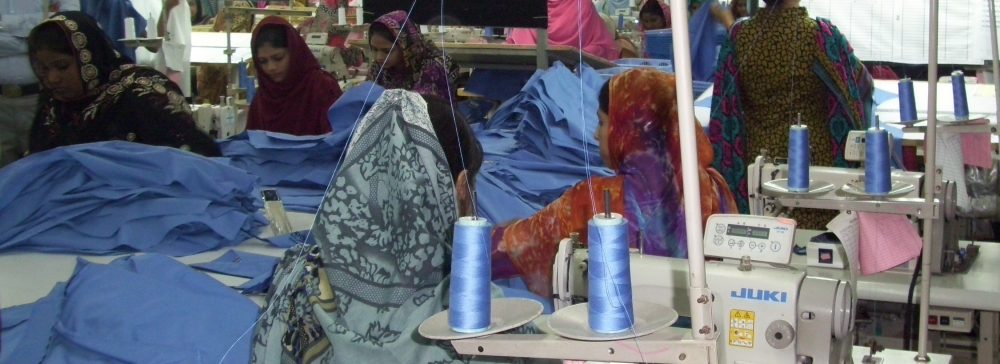RGS-IBG 2000 Sussex
RGS/IBG Annual Conference
2000 Sussex University
January 4th-7th 2000
EGRG-Sponsored Sessions
Postgraduate Research in Economic Geography at the Start of the Millennium
Convenors: Rupert Waters (Coventry University) and Paul Kent (QMW).
Wednesday 5th January
Module 3
Chair: Paul Kent
Knowledge-space and the Italian motorsport industry
Tim Angus (University of Birmingham).
Electronic commerce and the small firm: the implications of online shopping for a bank and a supermarket,
Andrew Murphy (Coventry University).
Scientific labour markets in Oxfordshire and Cambridgeshire,
Rupert Waters (Coventry University).
Mutual ownership and financial exclusion: a study of changes in the branch networks of British building societies,
(JN Marshall, R Willis, S Raybould, R Richardson and M Coombes (University of Newcastle upon Tyne).
Module 4
Chair: Rupert Waters
A community-based assessment of urban regeneration,
K Broughton (Coventry University).
Including the excluded? Effects of welfare-to-work programmes on lone parents in Buffalo, New York,
J Casebourne (University of Cambridge).
Social constructions of sustainability and regeneration in coalfields,
A Smith (University of Durham).
Lessons for an ‘urban renaissance’: emerging forms of governance and the new challenges facing localities,
M Whitehead (University of Wales, Aberystwyth).
Economies and Politics of Scale (with PolGRG)
Convenors: Gordon MacLeod (University of Durham) and Jane Pollard (University of Birmingham)
Thursday 6th January
Module 1: (Re-)Scaling Economic Geographies
Chair: Gordon MacLeod (University of Durham)
Globalisation from below: ‘Birmingham- postcolonial workshop of the world’,
N Henry, J Bryson, C McEwan and J Pollard (University of Birmingham).
Australian labour unions and the politics of scale,
D Sadler (University of Durham) and B Fagan (Maquarie University).
Fixing the odds: relations of scale and local economic development in Atlantic City, New Jersey,
S DiGiovanna (The State University of New Jersey).
Changing scale, changing class relations,
J Gough (University of Northumbria).
Module 2: (Re-)Scaling Political Geographies
Chair: Jane Pollard (University of Birmingham)
‘It’s the economy, stupid’- but which economy? Geographical scale and British voters’ responses to the economic situation in 1997,
R Johnston (University of Bristol) and C Pattie (University of Sheffield).
Geographical scale and grass-roots internationalism: the Liverpool dock dispute, 1995-1998,
N Castree (University of Liverpool).
Disunited Kingdom? Towards a new territorial theory of the state?
M Goodwin (University of Aberystwyth).
Module 3: Theorizing the Political Economy of Scale
Chair: Gordon MacLeod (University of Durham)
Re-imagining scale in economic geography,
A Jonas (University of Hull).
Political-economies of scale,
J Peck (University of Manchester).
Fixity, motion, scale and territory,
N Brenner (New York University).
Elite power, global forces and the political-economy of ‘glocal’ development: Brussels’s conundrum,
E Swyngedouw and G Baeten (University of Oxford).
Module 4: New Regionalism? A Panel Discussion
Innovation and Technological Change: Impacts on National and Regional Competitiveness
Convenors: David Gibbs (University of Hull) and Helen Lawton-Smith (Coventry University)
Friday 7th January
Module 1
Chair: Helen Lawton-Smith (Coventry University)
On the geography of innovation networks in capital goods projects,
N Alderman and A Thwaites (University of Newcastle) and D Maffin (Marconi Power & Control Systems).
Spatial patterns of innovation and trade competitiveness: high-tech industries in Italy,
S Breschi (Bocconi University) and D Palma (ENEA).
Ties that bind? Collective learning, innovation and relational assets in the Aberdeen oil complex,
K Chapman and A Cumbers (University of Aberdeen).
Cutting edges in strange places: innovation and territory in the UK computer and video games industry,
R Naylor and J Cornford (University of Newcastle) and S Driver (Roehampton Institute).
Module 2 (11:00-12:30)
Chair: David Gibbs (University of Hull)
Information and communications technologies and the Celtic “Cyber-Tiger”,
P Breathnach (National University of Ireland).
The impact of EU information technology programmes on European cohesion: the case of Ireland,
S Grimes (National University of Ireland).
Innovative firms and ICT- redefining the meaning of local space?,
O Jonsson and R Youlds (Lund University, Sweden).
Constructing the virtual market place: technological change, institutionalinnovation and securities trading,
Niall Majury (University of Leeds).
New Economic Geographies, New Methodologies?
Convenors: Jane Pollard, Nick Henry and Ian Cook (University of Birmingham)
Friday 7th January
Module 3
Theory and practice, text and action: challenges in studying small enterprises and employment relations,
Annamarie McMenanin (University of Portsmouth).
Studying economic institutions, placing cultural politics: methodological issues from an East Midlands study,
Adam Strange and Parvati Raghuram (Nottingham Trent University).
Practising new economic geographies? Some methodological considerations,
Henry Wai-chung Yeung (National University of Singapore).
Methodological musings and the academic gaze: ‘l-ing up’ new economic geographies,
Duncan Fuller, Cathy Bailey and Catherine White (University of Northumbria).
Module 4
Evaluating the process: the use of qualitative methodologies in evaluating local employment and development initiatives,
Peter Lloyd and Richard Meegan (University of Liverpool) and Catriona Ni Laoire (Queen’s University, Belfast).
Geography and public policy: the missing manifesto,
Ron Martin (University of Cambridge).
Discussants: Linda McDowell (LSE) and John Allen (Open University).
Latest
conference archive
- 2017 RGS-IBG London
- 2016 RGS-IBG London
- 2015 RGS-IBG Exeter
- 2014 RGS-IBG London
- 2013 RGS-IBG London
- 2012 RGS-IBG Edinburgh
- 2011 RGS-IBG London
- 2010 RGS-IBG London
- 2009 RGS-IBG Manchester
- 2008 RGS-IBG London
- 2007 RGS-IBG London
- 2006 RGS-IBG London
- 2002 RGS-IBG Belfast
- 2000 RGS-IBG Sussex
- 1999 RGS-IBG Leicester
- 1998 RGS-IBG Kingston
symposium archive
